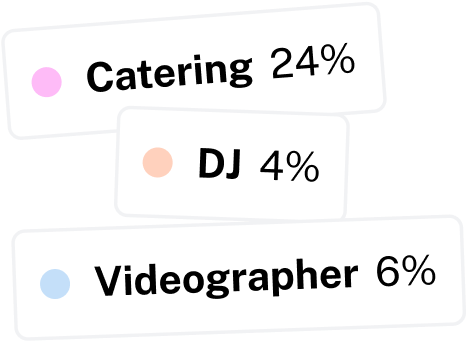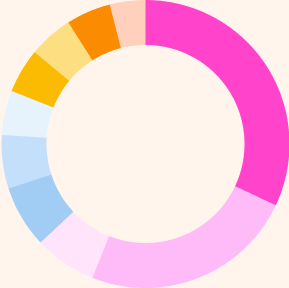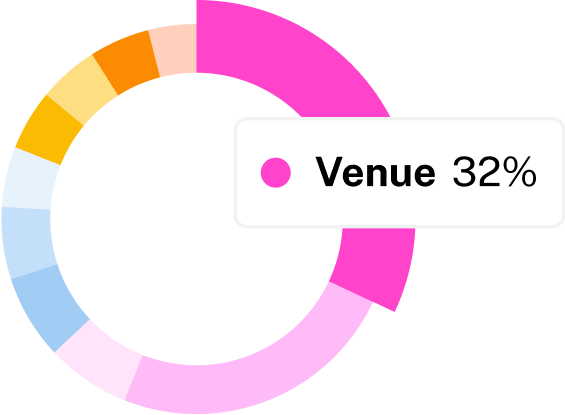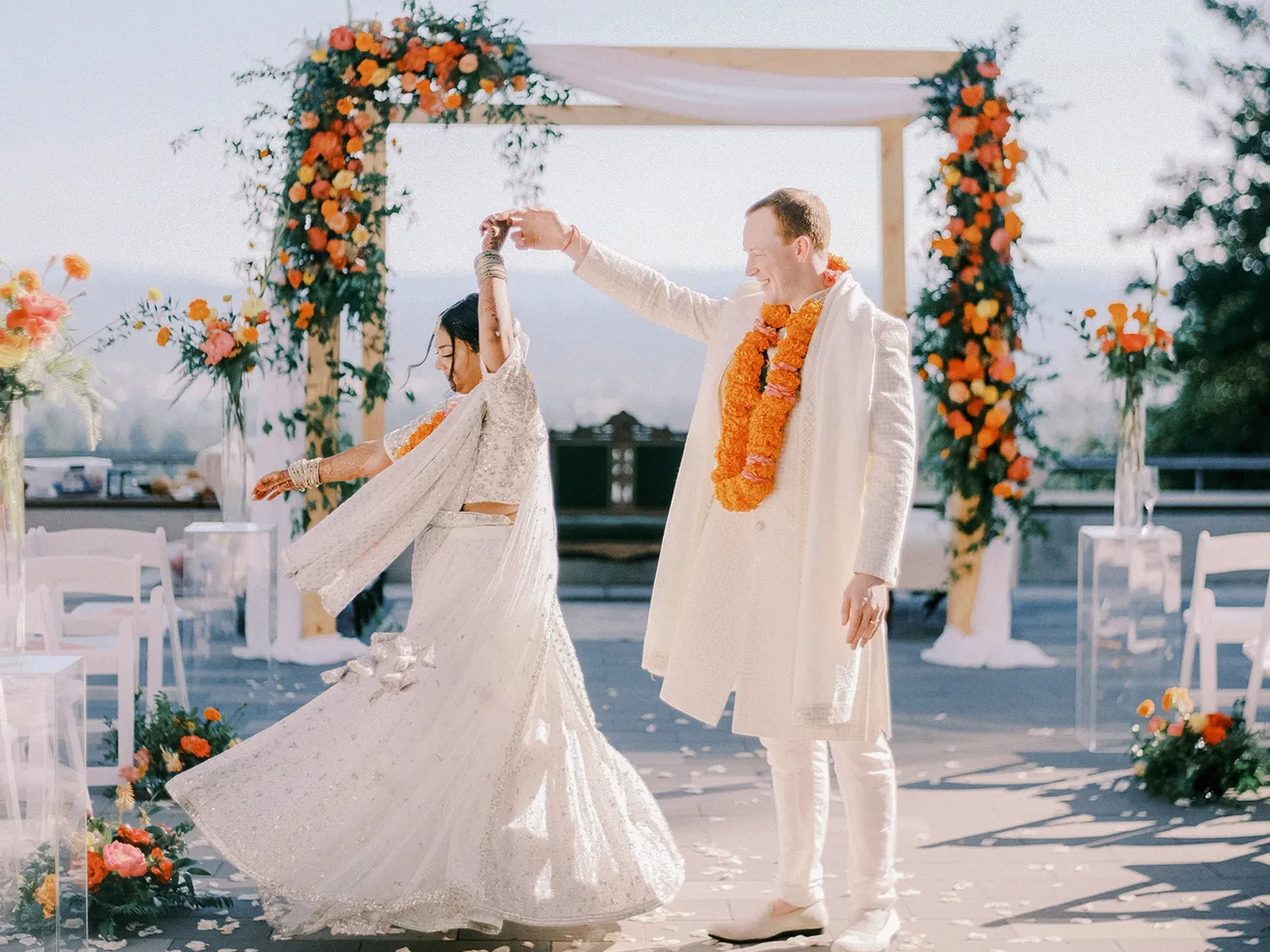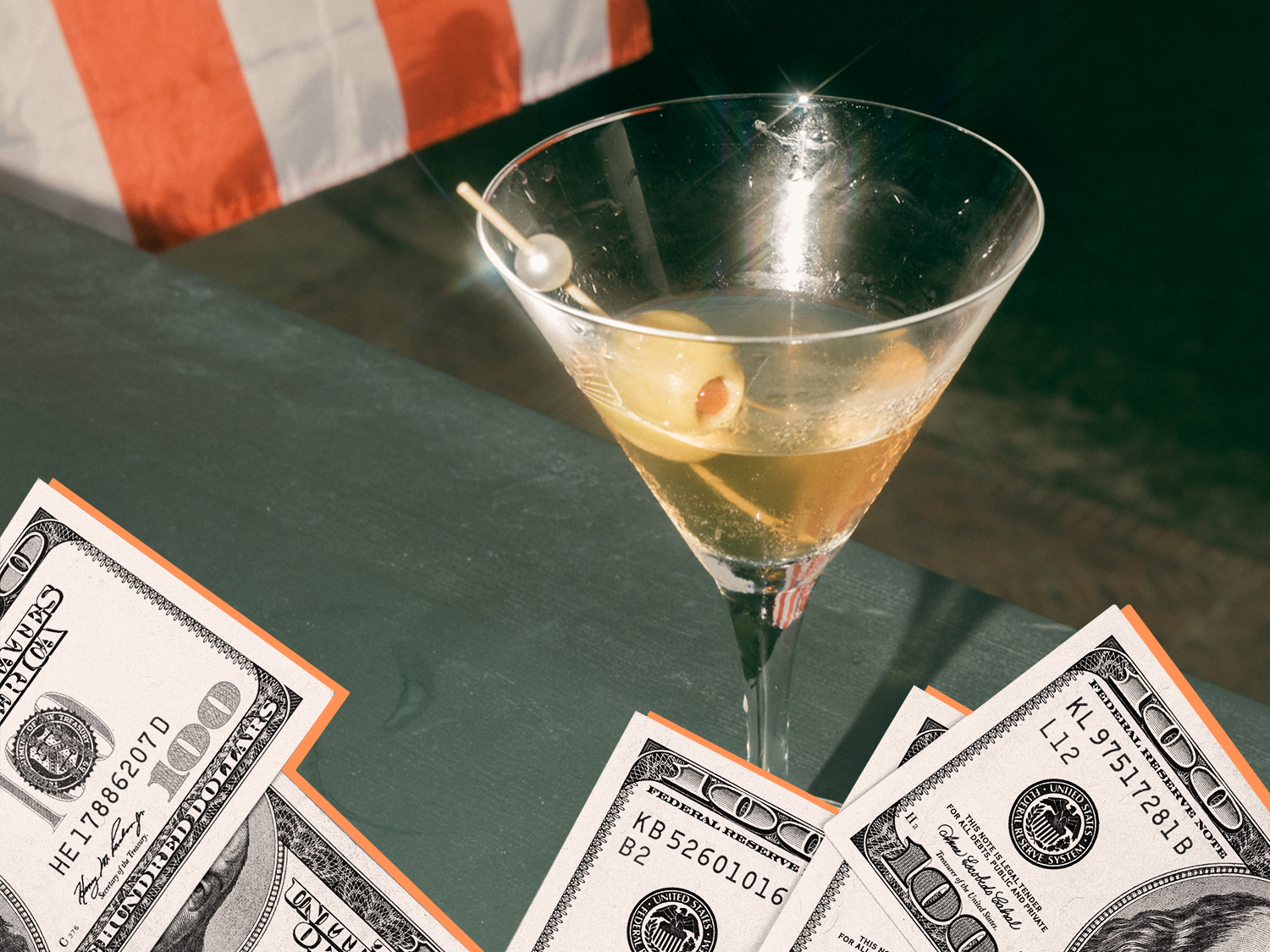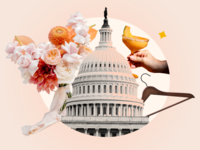3 Experts Share Exactly When to Pay Wedding Vendors

Unless your day job requires vetting and hiring vendors on a regular basis, there might be a little bit of awkwardness around when to pay wedding vendors. You know they're going to do an incredible job, but you're not sure if you should negotiate, when you should hand that big check over or whether that final payment should include a tip (which you can work into your wedding budget planning).
Luckily, there's some basic etiquette around when you pay each different type of vendor, even though there are nuances depending on what's standard where you're getting married. For example, expert planner Kelly Jeanmaire of The Main Event By Kelly based in Upstate New York notes that she sees most vendors fully paid before the wedding day. "If you're hiring a professional vendor with a solid contract in place and past client references, there are no reasons to be afraid that they will not show up or not deliver on what has been agreed upon. It is way more frequent for clients to not pay remaining balances after the event."
But, as you're working your way down your wedding vendor checklist and finding vendors on The Knot Vendor Marketplace, keep in mind that not every vendor needs to be paid on day one (a major plus if you're still figuring out the best way to pay for your wedding). Here's what three experts had to say about paying wedding vendors and making sure everyone is paid for their hard work and creativity.
In this article:
Before the Wedding
Nicole Ettenhofer, vice president of growth and strategy at George Street Photo and Video with offices across the US, explains that it should typically be assumed that vendors will want payments settled before the wedding day unless the contract specifies different terms (and some do).
"The vast majority of these are often 30 days (photography, videography and music) and 14 days (catering, florals and lighting) in advance of the big day," adds Emily Coyne, founder and California-based wedding planner at Emily Coyne Events.
While some couples may be hesitant to pay vendors before a product has been delivered, remember, this is where those recommendations and referrals are key. That's not to say you shouldn't take a chance on a new vendor, but consider adjusting the contract terms when you don't have someone who can vouch for their work.
When do you pay wedding vendors before the big day? These are the pros that typically require payment before you walk down the aisle.
- Venue: Your venue is likely going to expect full payment before you begin bringing in your decor and your wedding party.
- Wedding Dress Designer: While you'll pay a deposit when you order your dress, you'll pay the balance when the dress is delivered, usually several weeks before your wedding.
- Alterations: These should be paid when you pick up your item and do your final fitting.
- Caterer: Your final bill to your caterer will depend on where the head count lands in the days leading up to the wedding, but that amount will need to be paid before the first plate is served.
- Bartender: A bartender will also need a final count and their payment should be made at the same time as the caterer.
- Photographer: Ettenhofer notes that a photographer will generally require payment in full to secure their services on your wedding day.
- Videographer: Videographers operate under similar terms to photographers, requiring full payment before the wedding.
- Florist: "Florists generally require payment before they start working on your floral arrangements," says Ettenhofer.
- Cake Baker: The baker's work is done ahead of the wedding day and they'll typically expect the payment ahead of time, too.
- Stationer: While there could still be some items that are delivered on your wedding day, most of a stationer's work is done months in advance and the payment should be delivered at that time, too.
- Calligrapher: The calligrapher's final payment should be delivered one to two weeks ahead of the wedding.
- Entertainment: Whether you hire a DJ or a band, these entertainers will typically need to be paid before they take the stage. A tip of $25 to $50 per performer is a nice add-on.
- Lighting: Similar to entertainment, lighting should be paid ahead of the wedding day.
- Officiant: Officiants are tricky territory because they may be a friend, family member or a clergy member if you're getting married in a religious institution—these officiants either do not accept payment or are paid via a donation. However, if you've hired an officiant, then they most likely will expect payment ahead of time.
Day of the Wedding
Most of the payments due on the day of your wedding are tips rather than final balance due situations. It might come as a surprise how many vendors should be tipped for doing an incredible job, and you can find the common etiquette around tipping on the wedding vendor tipping sheet.
Some of these tips will become part of your final payment, while others should be delivered individually. Ettenhofer explains, "Many vendors appreciate receiving tips on the day of the wedding, including catering staff, bartenders, delivery personnel and musicians. Prepare envelopes with the appropriate amounts and designate someone to distribute them."
- Makeup Artist: It's not uncommon to pay the final balance to makeup artists on the day of the wedding, particularly if the wedding party includes people paying for their own makeup.
- Hair Stylist: Hair stylists typically follow the same payment schedule as makeup artists, with final payment due before you walk down the aisle.
- Ceremony Musicians: "I have seen a soloist performing an instrument for the ceremony also get paid on the wedding day," says Jeanmaire.
For these few vendors that require final payment on the day of the wedding, make sure you have a plan in place to get the payment where it needs to go—and make sure that plan isn't you.
"Having to write checks, count cash or otherwise deal with transactions on the wedding day is never ideal and inevitably comes at the worst timing," says Coyne, pointing out that you've invested time, energy and money into this day already and you deserve to stay present by eliminating tasks.
Coyne recommends, "Ask your planner to make these on your behalf or delegate someone responsible who is not involved in family photos or the ceremony."
After the Wedding
"Vendors are usually paid after the wedding only if their contract specifies this arrangement," says Ettenhofer. However, there are occasionally vendors that will need additional payment after the wedding depending on changes that were made or deposits that need to be accounted for.
- Rental Companies: "If any items are rented, final payments might be due after their return and inspection for damages," says Ettenhofer.
- Final Catering Charges: While the initial catering bill is typically due ahead of the wedding, there may be a final bill that accounts for any additional charges based on consumption. "The caterer will likely have collected a final deposit prior to the wedding based on 'estimated' consumption, so you may either receive a refund or owe an additional amount depending on what was consumed," says Coyne.
- Transportation: "Shuttles will frequently charge the final amount after the wedding based on actual travel time," says Coyne.
As you navigate when to pay wedding vendors, you may wonder if there are ways to make swiping your card and writing checks less painful. If it helps you plan your finances, you may be able to negotiate a payment plan with your vendor but know that it will still include having the funds paid in full before the wedding.
Coyne explains, "Payment plans with vendors usually means payment plans to collect the funds in full by their original due date, not to extend the due dates until after the wedding. Speak to your vendors individually about this prior to signing any contracts."


